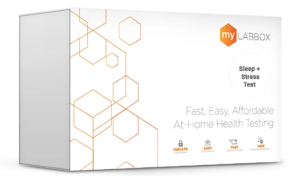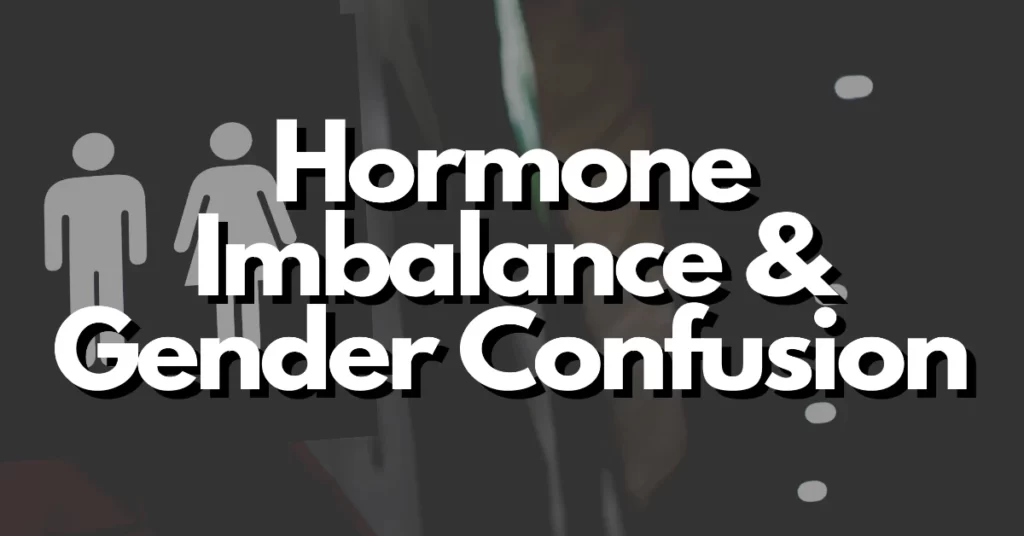Gender identity is a deeply personal and complex aspect of our lives, and it is influenced by a combination of biological, psychological, and sociocultural factors. Hormones, as key regulators of our bodies, can play a role in shaping our gender identity.
In this blog post, we will explore the potential connection between hormone imbalance and gender confusion. We will delve into the scientific understanding of how hormonal factors can influence gender identity, while acknowledging the importance of respecting and validating diverse experiences.

Table of Contents
Understanding Gender Identity and the Complexity of Hormonal Influences:
Gender identity is a deeply personal and multifaceted aspect of an individual’s identity. It encompasses an individual’s deeply felt sense of being male, female, or another gender, which may not necessarily align with their assigned sex at birth. Hormonal influences play a complex role in the development and expression of gender identity.
Hormones, such as testosterone and estrogen, are commonly associated with male and female physical characteristics, respectively. However, the relationship between hormones and gender identity is not fully understood and is likely influenced by a combination of genetic, hormonal, neurological, and environmental factors.
Each individual’s experience of gender identity is unique, and it is important to respect and support individuals in their self-identified gender. Consulting with healthcare professionals specializing in gender-affirming care can provide valuable insights and guidance on the complexities of hormonal influences and gender identity.
Exploring the Connection Between Hormone Imbalance and Gender Perception:
The connection between hormone imbalance and gender perception is a complex and evolving area of study. Hormones, such as testosterone and estrogen, play significant roles in the development of physical characteristics associated with gender.
Hormone imbalances can potentially impact these physical characteristics and lead to incongruence between an individual’s perceived gender and their assigned sex at birth. For individuals experiencing gender dysphoria, hormone therapy may be an important aspect of their gender-affirming journey.
Hormone therapy, under the guidance of healthcare professionals specializing in transgender healthcare, can help align physical characteristics with an individual’s gender identity, supporting their well-being and overall gender perception.
Navigating the Emotional and Psychological Effects of Hormonal Fluctuations:
Hormonal fluctuations can have significant emotional and psychological effects on individuals. Hormones play a crucial role in regulating mood, emotions, and overall mental well-being. Fluctuations in hormone levels, such as those experienced during menstrual cycles, pregnancy, menopause, or hormonal disorders, can contribute to emotional and psychological changes.
These changes may include mood swings, irritability, anxiety, depression, or changes in libido. It is important to recognize and validate the emotional and psychological effects of hormonal fluctuations and provide support and understanding.
Self-care practices, such as maintaining a healthy lifestyle, engaging in stress management techniques, seeking social support, and considering therapy or counseling, can help individuals navigate the emotional and psychological effects of hormonal fluctuations.
Supporting Gender Identity: Resources and Strategies for Hormonal Balance:
Supporting gender identity involves providing resources and strategies for hormonal balance to individuals who are seeking to align their physical characteristics with their gender identity. Hormone therapy, under the guidance of healthcare professionals specializing in transgender healthcare, can play a crucial role in this process.
They can provide comprehensive assessments, guide individuals through the process, monitor hormone levels, and address any potential health concerns. It involves the use of hormones, such as testosterone or estrogen, to induce changes in physical characteristics to align with an individual’s gender identity.
Additionally, connecting with transgender support networks, advocacy organizations, and mental health professionals who specialize in gender-affirming care can provide valuable resources and support throughout the journey of hormonal balance and gender identity affirmation.
Conclusion:
The relationship between hormone imbalance and gender confusion is a complex and multifaceted topic. While hormones do play a role in the development of our gender identity, it is important to recognize that gender identity is a deeply personal and individual experience that extends beyond hormonal influences.
Hormone imbalances, such as those experienced in conditions like polycystic ovary syndrome (PCOS) or hormone-related disorders, can contribute to psychological and emotional challenges, but they do not determine one’s gender identity.
It is crucial to approach gender identity with empathy, respect, and support, recognizing that it is a deeply personal journey for each individual. If you or someone you know is experiencing gender confusion or questioning their gender identity, it is recommended to seek professional support from healthcare providers or organizations specializing in gender-affirming care.

